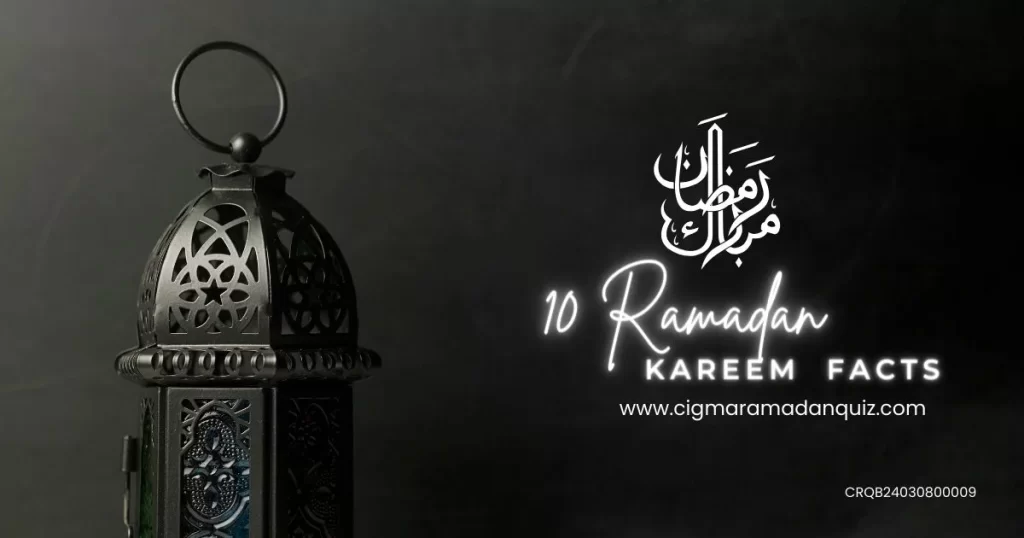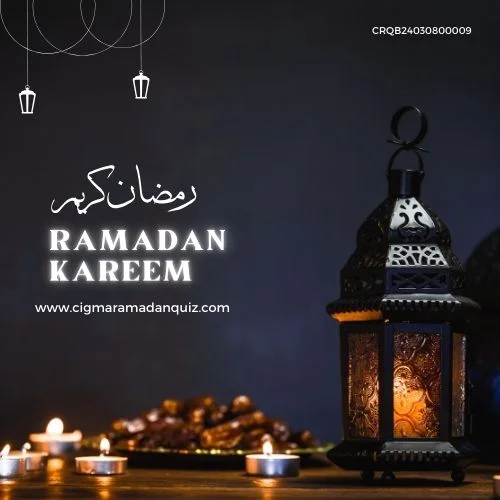Ramadan kareem, the holiest month in Islam, holds profound significance for Muslims worldwide. Beyond the observance of fasting, it is a time of spiritual reflection, self-discipline, and devotion to Allah (SWT). In this article, we uncover ten essential facts about Ramadan kareem, shedding light on its origins, practices, and cultural significance. As Ramadan 2024 is soon arriving you must now this facts that we mentioned in our blog.
Also Check : When is Ramadan 2024

1. The Meaning Behind ‘Ramadan’
The term ‘Ramadan’ derives from the Arabic word ‘ar-ramad,’ meaning ‘heat’ or ‘intensely heated by the sun.’ This name reflects the sweltering conditions during which the month typically occurs and symbolizes the burning away of sins through fasting.
2. Multiplication of Rewards of Ramadan Kareem
During Ramadan kareem, the rewards for good deeds are multiplied manifold. As Muslims engage in acts of worship and charity, they earn greater spiritual blessings and have their sins forgiven. The final ten nights, particularly Laylatul Qadr, hold special significance, offering unparalleled opportunities for divine grace.
Also Check : Ramadan Mubarak 2024
3. Dynamic Dates
Unlike the fixed dates of the Gregorian calendar, Ramadan follows the lunar-based Islamic calendar, resulting in shifting dates each year. The month begins upon the sighting of the new moon, marking the start of a period of spiritual introspection and devotion.
4. Comprehensive Abstinence
Fasting in Ramadan kareem extends beyond abstaining from food and drink. Muslims also refrain from sinful behaviors such as lying, gossiping, and engaging in sexual relations during daylight hours. This holistic approach fosters spiritual purification and self-discipline.
Also Check : Ramadan Quiz 2024
5. The Significance of Dates
Dates, a staple food during Ramadan kareem, offer a nutritious source of energy to break the fast. Traditionally favored by Prophet Muhammad (PBUH), dates provide essential nutrients and replenish energy levels after a day of fasting, promoting overall well-being.
6. Who Is Excused from Fasting?
While fasting is a fundamental practice for most Muslims during Ramadan kareem, certain individuals are exempt. This includes the elderly, the ill, pregnant or breastfeeding women, young children, and travelers. Those unable to fast are encouraged to make up missed days later or offer charitable donations as compensation.
Also Check : Rules of Taraweeh Salah and Taraweeh Ki Dua
7. Rich Historical Legacy
Ramadan kareem boasts a rich history spanning nearly 1,500 years, with Muslims worldwide observing its rituals and traditions. Originating in the city of Medina in 624 CE, Ramadan has endured as a testament to the enduring faith and devotion of believers across generations.
8. Blending Ramadan with Everyday Activities
Despite the challenges of fasting, Muslims are expected to continue with their daily responsibilities during Ramadan. Fasting does not exempt individuals from work or school commitments, emphasizing the integration of religious observance with daily life.
Also check : Ramadan Fasting 2023-24

9. Concluding with Celebration
As Ramadan kareem draws to a close, Muslims mark the occasion with acts of charity and celebration. Zakat al-Fitr, an obligatory donation, is made to assist the less fortunate, while Eid al-Fitr heralds a joyous period of gift-giving and feasting, commemorating the end of the fasting month.
10. Expressing Ramadan Greetings
To convey well-wishes during Ramadan kareem, Muslims commonly use greetings such as ‘Ramadan Kareem’ (Have a generous Ramadan!) or ‘Ramadan Mubarak’ (Happy Ramadan!). As the month concludes and Eid al-Fitr approaches, greetings transition to ‘Eid Mubarak,’ symbolizing the culmination of spiritual fulfillment and celebration.
Here are some congratulatory messages you can use to extend your wishes for a blessed Ramadan
- May Allah accept all our good deeds – Takabbal-Allahu Minna Wa Minkum Salihal A’maal تَقَبَّلَ اللهُ مِنَّا وَمِنْكُمْ صَالِحَ الأَعْمَال.
- Congratulations! Allah has blessed you with the opportunity to witness another Ramadan – Mubarak Laka Ann Ballaghaka Allahu Ramadan مُبَارَكٌ لَكَ أَنْ بَلَّغَكَ اللهُ رَمَضَان.
- I pray that Allah blesses you with forgiveness – As’alu-Allaha Ann Yukrimaka Bil Maghfirah أسأل الله أن يكرمك بالمغفرة.
- May Allah grant you many more years to experience Ramadan – A’adahul-Allahu ‘Alaikun A’waman ‘Adeeda أعاده الله عليكم أعوامًا عديدة.
FAQs
1. Can non-Muslims participate in Ramadan fasting?
Non-Muslims are welcome to join in the spirit of Ramadan by fasting if they wish. However, it is not obligatory for non-Muslims, and they may choose to participate in other supportive ways, such as attending community Iftar gatherings or offering words of encouragement.
2. Are there specific foods to avoid during Ramadan?
While fasting, Muslims abstain from consuming any food or drink, including water, from dawn until sunset. Additionally, it is recommended to avoid overly indulgent or heavy foods during Suhoor (pre-dawn meal) and Iftar (evening meal) to maintain optimal health and energy levels throughout the fasting period.
3. What is Lailatul Qadar, and why is it significant?
Lailatul Qadar, often referred to as the Night of Power, is considered the holiest night of the year in Islam. It commemorates the night when the Quran was first revealed to Prophet Muhammad (PBUH). Muslims believe that worship and prayers offered on this night carry immense spiritual rewards and blessings.
4. How do Muslims calculate the beginning and end of Ramadan?
The start and end of Ramadan are determined by the sighting of the new moon, as per the Islamic lunar calendar. Islamic scholars and local religious authorities observe the moon’s phases to ascertain the beginning of Ramadan, typically following the testimony of reliable witnesses.
5. What are some common traditions observed during Ramadan?
In addition to fasting and increased religious observance, Muslims often engage in charitable activities, recitation of the Quran, and nightly prayers known as Taraweeh. Community Iftar gatherings, where families and friends break their fast together, are also a prevalent tradition during Ramadan.
Conclusion
Ramadan kareem stands as a testament to the faith and devotion of Muslims worldwide, encompassing rich traditions, spiritual practices, and profound significance. As believers embark on this sacred journey of fasting, reflection, and worship, they are united in their pursuit of spiritual growth and closeness to Allah (SWT). Through the observance of fasting, acts of charity, and communal gatherings, Ramadan serves as a time of renewal, purification, and celebration of faith.
In essence, these ten facts about Ramadan offer a glimpse into the multifaceted nature of this holy month, highlighting its historical legacy, cultural significance, and enduring relevance in the lives of Muslims. As we immerse ourselves in the spirit of Ramadan, may we find strength, solace, and blessings in the profound teachings and practices of this sacred time.
With each passing year, Ramadan reaffirms its place as a cornerstone of Islamic faith and a source of spiritual rejuvenation for believers of all backgrounds. As we commemorate the timeless traditions and timeless teachings of Ramadan, let us embrace its lessons of compassion, self-discipline, and devotion, enriching our lives and communities with the spirit of faith and unity.
Ramadan Kareem !

